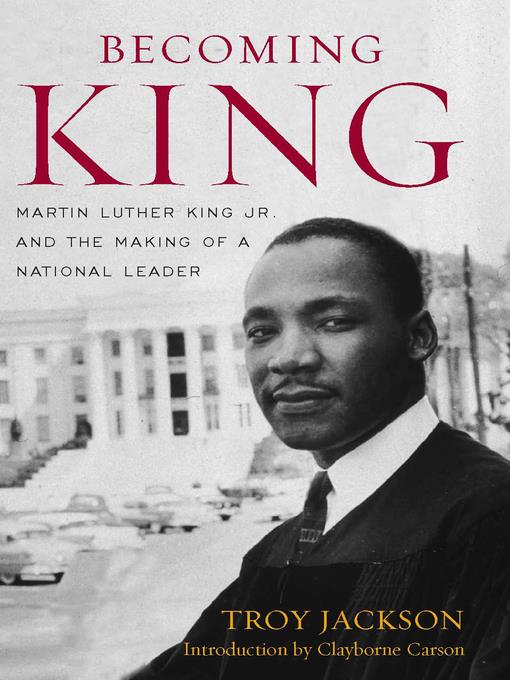
Becoming King
Martin Luther King Jr. and the Making of a National Leader
کتاب های مرتبط
- اطلاعات
- نقد و بررسی
- دیدگاه کاربران
نقد و بررسی

Starred review from November 17, 2008
An oft-told story, this account of the Montgomery desegregation struggle benefits from a subtle shift in focus to the ordinary men and women who served as the foot soldiers in the 1955 bus boycott. Besides a dutiful overview of King's formative years, pastor and editor Jackson (The Papers of Martin Luther King Jr., Volume VI) shines a spotlight on Montgomery community leaders like E.D. Nixon, a member of the influential Brotherhood of Sleeping Car Porters, and Jo Ann Robinson, of the local Women's Political Council, who fought for civil rights (and clashed over tactics) long before King arrived on the scene. The decisive battle began as a modest attempt to gain concessions such as hiring African American bus drivers and restraining white drivers from verbally abusing black passengers; though King and Rosa Parks brought the boycott unprecedented attention, the movement's greatest resource was its historic alliance of working and professional classes-men and women who rarely mingled but suffered alike at the hands at the whites. Success was bittersweet: King outgrew the Montgomery crisis; Rosa Parks, destitute, left the city for Detroit; remaining leaders squabbled or succumbed to the white backlash. Jackson's storytelling skill and broad perspective make this a worthy addition to the literature of the U.S. civil rights movement.

September 15, 2008
Jackson (senior pastor, University Christian Church, Cincinnati; editor, "The Papers of Martin Luther King Jr." Vol. 6: "Advocate of the Social Gospel, September 1948March 1963") has written a convincing reinterpretation of the role of King in the Montgomery, AL, bus boycott of 195556. Jackson grants that King's inspirational oratory and ability to communicate to African Americans across class lines made him a powerful symbol and chief spokesman of the movement there. However, the black community in Montgomery had laid the groundwork through its organizing activities in the late 1940s and early 1950s. Local activists, white and black, including NAACP leader E.D. Nixon and Women's Political Council president Jo Ann Robinson, as well as civil rights lawyers Virginia and Clifford Durr and librarian Juliette Morgan, planted the seeds that flowered in the boycott. Jackson concludes that in many ways, King did not make the boycott movement; the blacks of Montgomery made him. Highly recommended for all major libraries.Anthony Edmonds, Ball State Univ., Muncie, IN
Copyright 2008 Library Journal, LLC Used with permission.

























دیدگاه کاربران